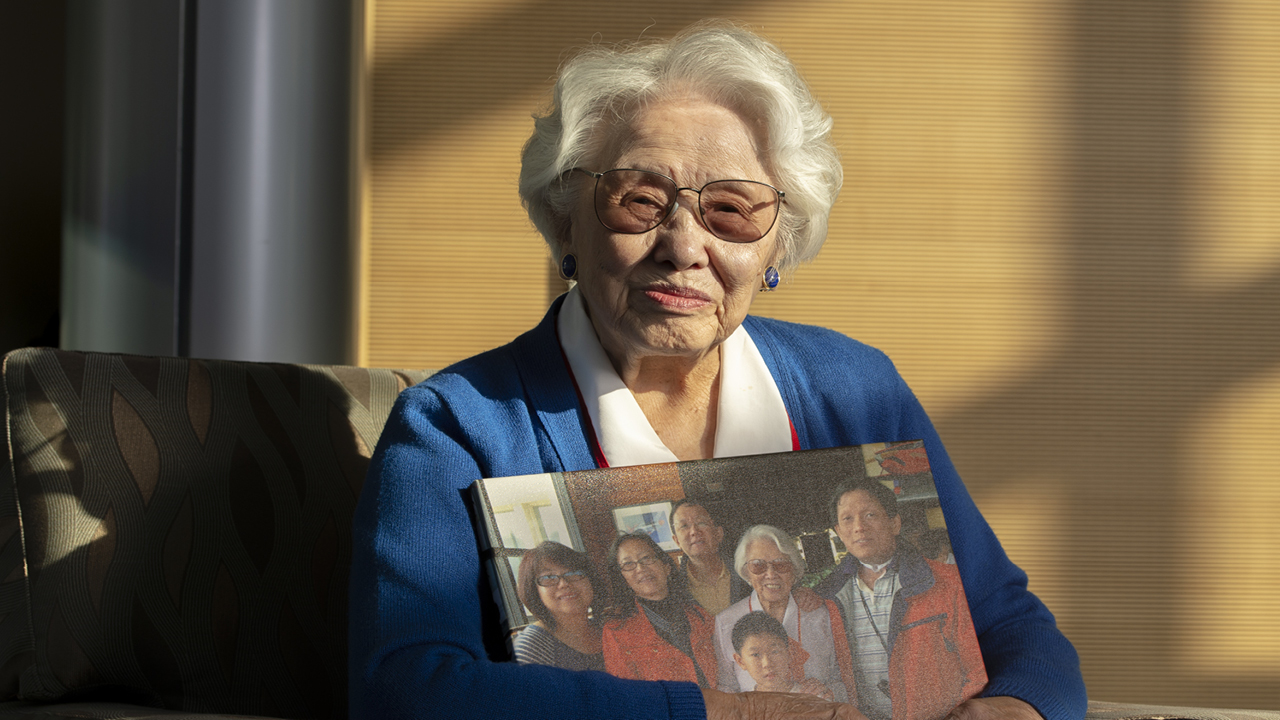In honor of a man with a generous spirit, a generous gift
Donation supports innovative robotic treatment
Ellen Kwong uses a lot of positive words to describe her late son, Glenn: loving, caring, humorous and upbeat. But the word Mrs. Kwong uses most is “generous.”
“That was Glenn,” she says as a smile washes over her face. “He reached out to help people he didn’t even know.”
Glenn Kwong, the youngest of three, died in 2015 from esophageal cancer, more than two years after his diagnosis at UC Davis Health. In honor of Glenn’s generous spirit, Mrs. Kwong made a financial gift to his surgeon, Gregory Farwell, who researches and treats head and neck cancers. The gift helped Farwell hire coordinators for an important clinical research project in multidisciplinary collaboration with colleagues from the UC Davis Department of Biomedical Engineering (see this issue's "Bits & pieces").
The project involves a tool developed by biomedical engineer Laura Marcu that can distinguish between cancerous and benign tissue and can be used by the surgeon during a procedure. Farwell, who does robot-assisted head and neck cancer surgeries, worked with Marcu to integrate the tool with the robot so that he can more precisely remove cancer tumors and spare healthy surrounding tissue identified with the new tool.
“The donation was humbling because what Glenn and his mom went through was intense,” says Farwell. “Thanks to the Kwong family and other grateful patients, we can apply additional resources to our studies.”
Keeman Wong, executive director of development for the Cancer Center, says gifts made in memory of a loved one or in honor of a care provider are very special.
“It warms our hearts to know that these gifts are usually made as a way to say ‘thank you’ or that ‘this person meant a lot to me and I want to pay tribute to them,’” he says. “In this case, Mrs. Kwong did both — to honor her son and recognize Dr. Farwell and his team for their care.”
The best course of treatment for Glenn was surgery to remove his larynx, or voice box, and the cancerous section of his esophagus. Once Farwell removed the malignant tissue, another surgeon, Richard Bold, performed a gastric pull-up, in which the remainder of Glenn’s esophagus was attached to his stomach to preserve his ability to eat normally.
“Head and neck tumors create problems with things we take for granted, like eating, drinking and talking — the things that connect us as humans and are among the greatest joys in life,” Farwell says. “Glenn displayed such strength while undergoing treatment and had wonderful family support. I can’t overemphasize how important that is.”
Mrs. Kwong described her son’s resilience throughout his ordeal.
“I knew Glenn was in pain, but he never complained,” she says. “He never said a negative word. No matter how tired he was.”
Despite months of chemotherapy and radiation before and after his surgery, Glenn maintained a positive attitude and sense of humor. Before he got sick, Glenn managed an apartment building and volunteered his time helping others, which he continued as long as he could.
“Once, after his surgery, Glenn asked, ‘Mom, can you drive me to this house?’ I had no idea where we were going,” says Mrs. Kwong. “We got to the house, he went inside, and he came back out with an old man. Glenn said, ‘I ran into him on the street the other day walking home with groceries.’ The next week, we gave the man a ride to the store.”
Glenn and his mother were always close, and their special bond grew stronger during his cancer treatment. They had spent years before his diagnosis traveling throughout the world — Russia, Italy, Taiwan, Greece — and stuck together during his sickest days at home or at the hospital.
“The human body is resilient even after such aggressive treatment,” says Farwell. “Glenn was still able to enjoy life.”
Although he lost his ability to speak, Glenn communicated by writing. He and Mrs. Kwong scribbled notes to one another on yellow legal pads scattered throughout their home. They wrote about his care and upcoming appointments, vacations and events, and especially about food. Mrs. Kwong still treasures the last piece of paper they wrote on with the words “seafood soup” in huge letters.
“He liked food and he liked people,” Mrs. Kwong says, giggling. “His favorite meal was a steak.”
The Kwong family appreciates the care Glenn received at UC Davis Health. Three years after Glenn’s passing, his 94-year-old mother took the time to visit Farwell to personally say thank you for all of his efforts. Making a gift to support Farwell’s research felt natural.
“All along,” says Mrs. Kwong, “I really wanted to come in to say thank you for everything they (his care team) did for my son.”


